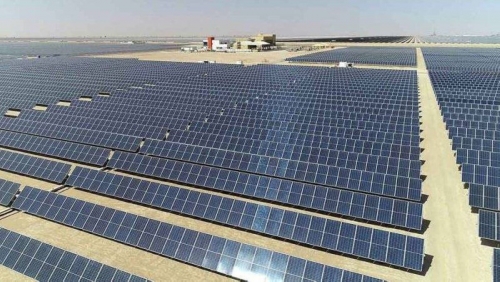The University of Bahrain is set to become home to one of the largest solar power plants in the region, with a capacity of 44 megawatts. This project is part of Bahrain’s commitment to achieving net-zero emissions by 2060. The plant will be constructed on the university campus, utilizing parking areas and open spaces for solar panels. The Planning and Studies Directorate at the Electricity and Water Authority has outlined the project, which will be overseen by a selected firm under a turnkey contract spanning two years.
The solar power plant at the University of Bahrain will utilize ground-mounted solar systems as well as panels installed over parking structures, maximizing the use of available space on campus. This project aligns with the country’s environmental goals, as announced by His Royal Highness the Crown Prince and Prime Minister, with the guidance of His Majesty the King. Bahrain aims to reduce greenhouse gas emissions by 30 percent by 2035 and to reach net-zero emissions by 2060.
Companies interested in bidding for the project must meet specific criteria set by the authorities. Eligible firms must have completed a minimum of ten grid-connected solar photovoltaic projects on a turnkey basis in the past three years, including two solar car park installations and one ground-mounted solar project. Additionally, bidders must have experience in designing, engineering, supplying, installing, supervising, testing, and operating grid-connected solar plants of at least 20 megawatts capacity within the past five years.
Financial requirements for bidders include a cumulative turnover of no less than $50 million across 2021, 2022, and 2023, with audited accounts. A liquidity ratio of at least 1.5 percent and positive annual profits over the past three years are also necessary. The selected firm will be responsible for all stages of the project, from engineering and design to installation, testing, and operation, including civil and electromechanical works.
Overall, the construction of the 44-megawatt solar power plant at the University of Bahrain represents a significant step towards achieving Bahrain’s environmental goals and transitioning towards sustainable energy sources. With a focus on utilizing available space for solar panels and meeting strict criteria for bidding companies, this project demonstrates the country’s commitment to reducing greenhouse gas emissions and working towards a greener future. This initiative aligns with global efforts to combat climate change and transition towards renewable energy sources.











